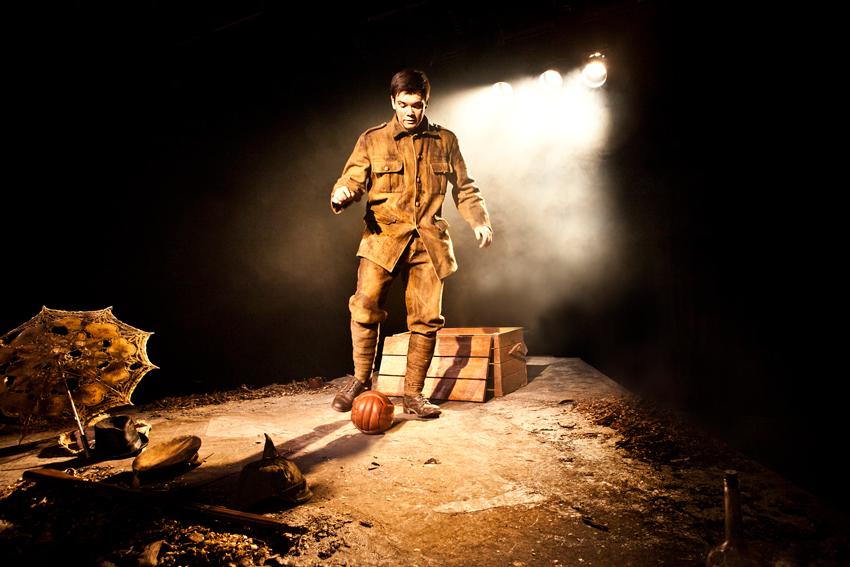NEW YORK—One man, actor Alex Gwyther, who also wrote the piece, presents episodes that occurred during World War I, which have come to be known as The Christmas Truce.
In 1914, for a brief time there were actually episodes during which opposing soldiers, the British and the Germans, came together in friendship on the battlefield.

Alex Gwyther wrote and stars in "Our Friends the Enemy." Pamela Raith





